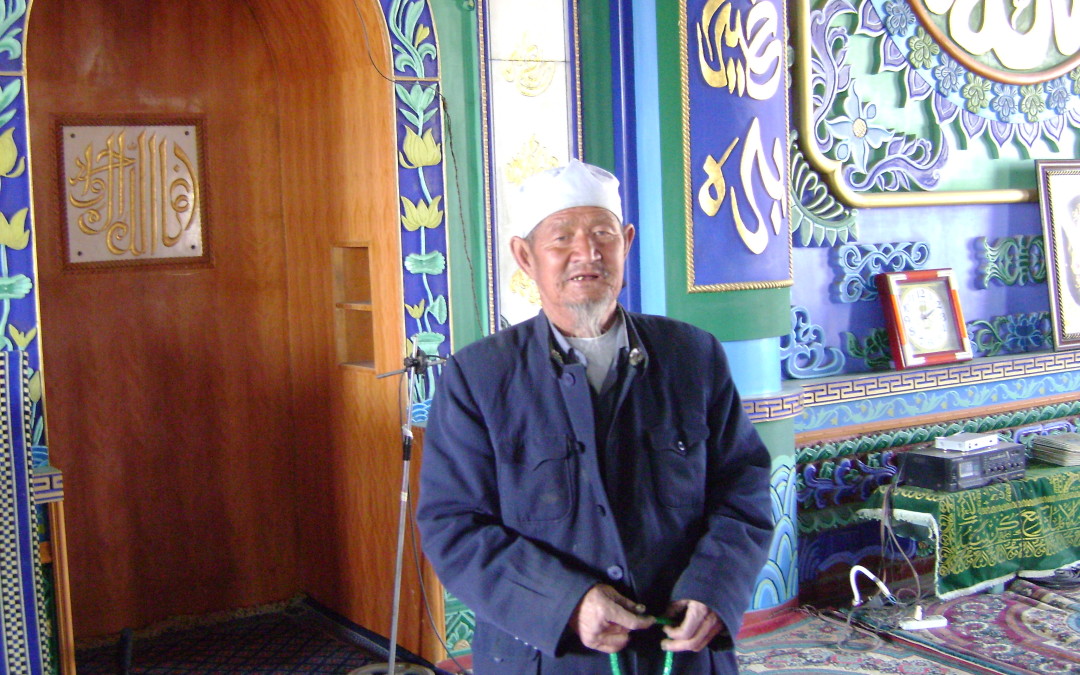There are millions of Muslims in China, but I didn’t realize this until a trip to a city in Western China where half of the population is Hui. One of the first things I noticed in this city was the prayer caps on many of the men’s heads. In the city where I live, I rarely see anyone wearing those hats unless they’re working in an ethnic restaurant. Before this trip, I assumed the hats were just a part of their uniforms. But in this city, it seemed like everyone was wearing them, and many of the women wore hijabs, which, where I live, are even rarer than men’s prayer hats. I also noticed a vast amount of mosques in the city – I asked a man on the street about this, and he guessed there were around 200 of them! I was reminded of streets in America where you can find Baptist, Methodist, and Presbyterian churches right next to each other, except these were all mosques representing several sects of Islam.
On the first day in the city, we went on a walking tour with a Muslim Chinese man. He took us to five different mosques, explaining a lot about Islamic beliefs and history along the way. I learned a lot from him. He was very willing to share with us about his faith and to answer our questions. We visited some mosques that were exactly what I picture when I think of a typical mosque, and we saw some others that looked more like Buddhist temples in Chinese style but that had the Muslim crescent symbol somewhere on them. I was a little surprised by this example of the way Islam has come into China and been contextualized into the culture.
One thing our tour guide said that stuck out to me was that Muslims all over the world pray to Allah in Arabic, because Arabic is the language of the Quran. There are certain Arabic prayers that they memorize, sometimes without understanding what the words mean, and they recite those prayers at each of the five daily calls to prayer. While I admire their diligence, it’s sad to think that they are praying to a god with words they often don’t understand. This seems very impersonal and makes me appreciate the one true God, who is very personal and relates to all Christians in their own language. Muslims also believe that any translation of the Quran cannot actually be the Quran; instead, translations are more like paraphrases. Only the Arabic Quran is infallible, because that was the language in which the prophet Muhammad received the Quran.
This trip was eye-opening for me. In my city, I don’t see many evidences of Islam other than in ethnic restaurants from other parts of the country. The city I visited had an unmistakable Muslim presence, and the visit showed me the great need for believers in China to share their faith with the many Muslims here.
I thank God for loving us personally and hearing us no matter what language we speak. Pray with us for the Muslims of China, that they will see that God loves and cares for them personally!

